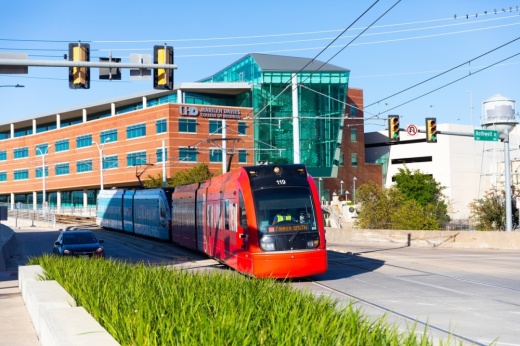A new report released in October by nonprofit Air Alliance Houston shows the need for reliable and well-funded public transportation in light of the COVID-19 pandemic.
Presented at the Oct. 28 Metropolitan Transit Authority of Harris County board of directors meeting, the COVID and Public Transit in the Houston Region report was a collaboration between Air Alliance Houston, advocacy group LINK Houston and the Robert D. Bullard Center for Environmental and Climate Justice.
The presentation showed 67% of fixed-route transit trips were taken on buses before the pandemic hit in early 2020. The study found that even though COVID-19 caused an estimated 40% decrease in public transportation use due to fear of the virus, a significant number of essential workers continued to rely on METRO's transit system to get to their jobs as their only source of transportation.
“We know that people use transit for a variety of trips,” said Ines Sigel, interim executive director for LINK Houston.
The study identified three communities to focus on for their findings: Third Ward, the Fifth Ward and Kashmere Gardens area, and the Sharpstown and Gulfton area—a predominantly minority and low-income community.
The study found an overall drop in public transit ridership but consistent ridership in these focused communities, with ridership actually increasing in October 2020 compared to pre-pandemic ridership in the Sharpstown and Gulfton communities, according to the report.
When providing feedback for the report, community members from the Sharpstown, Gulfton and Third Ward communities expressed interest in continuing usage of public transit. Comparatively, residents from the Fifth Ward and Kashmere Gardens communities said they did not plan on using public transit in the future, with one community member stating the need for better bus and light rail access, according to the report.
The report also touched on how improvement in public transportation will lead to combating climate change as it uses less carbon emissions, according to the presentation.
“It is well-established that reliable, accessible public transit is key in achieving a number of desirable goals, from providing access to opportunities, to reducing traffic congestion and combating climate change,” said Harrison Humphreys, transportation program manager at Air Alliance Houston, in an October report.
The report concluded with overall recommendations for the federal and state government to expand funding for public transportation and for local, regional and state planning entities to prepare for changes in transportation behavior.
The groups also recommended METRO continue to implement service improvements, such as expanding to reach more areas and educating riders on the risk of COVID-19 on public transit.
The METRO board will next meet on Nov. 18 at 10 a.m.





